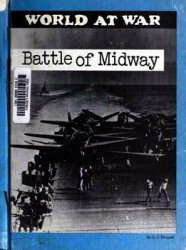The Mississippi Freedom Democratic Party (MFDP) was founded in April 1964 to challenge the right of the all-white Mississippi Democratic Party to represent the state at the national convention in August 1964 in Atlantic City, New Jersey.
The political party formed one segment of the larger Mississippi Summer Freedom project, which sent black and white volunteers to the state to work on voter registration and education initiatives. Under the direction of Staugh-ton Lynd, a white professor at Spelman College in Atlanta, Georgia, hundreds of black and white northern students took part in freedom schools, whose goal was to provide an alternative to Mississippi’s public school system for blacks. Northern volunteers also participated in registration drives, gathering at Miami University in Oxford, Ohio, for training. On Freedom Days, held every two or three weeks, volunteers from the Student Nonviolent Coordinating Committee (SNCC) urged blacks to try to register to vote collectively. On June 21, James Chaney, a black member of the Congress of Racial Equality (CORE) and white core workers Michael Schwerner and Andrew Goodman were shot dead near Meridian, Mississippi. All three were associated with the MFDP and the Mississippi Freedom Summer Project.
Activists Bob Moses and William Higgs first developed the idea to create a desegregated Democratic Party in Mississippi. Moses presented the project to the Council of Federated Organizations on February 9, 1964. The party was officially founded on April 26,1964, in Jackson. Aaron Henry, a member of the National Association for the Advancement of Colored People (NAACP) became its first chairman. Lawrence Guyot replaced him in the fall of 1964. Other important members included Annie Devine, Victoria Gray, and Fannie Lou Hamer, a member of the Student Nonviolent Coordinating Committee and the daughter of Mississippi sharecroppers. While the MFDP was open to all races, most of its members were black. The MFDP fielded four candidates in the democratic primaries held on June 2, 1968. Most notable were Gray, who opposed Senator John Stennis, and Hamer, who ran for Congress.
The MFDP held its first convention in Jackson in early August 1964. The convention selected 68 delegates
Including four whites and SNCC’s Charles McLaurin, Guyot, Hamer, E. W. Steptoe, Devine, and Hartman Turnbow. When they arrived in Atlantic City, MFDP delegates petitioned the Credentials Committee to recognize them as the only delegates from Mississippi, or, at the very least, to have a minority report read on the convention floor.
On August 19, President Lyndon B. Johnson, wary of losing Southern states to Republican presidential candidate Barry Goldwater, informed civil rights activists in a meeting at the White House that he opposed their efforts to unseat the regular Mississippi Democratic delegation. Johnson asked J. Edgar Hoover, director of the Federal Bureau of Investigation (FBI) to tap MFDP supporters’ phones and to keep him informed of their efforts at the convention. On August 22, when Hamer, testifying in front of the Credentials Committee, delivered an emotional description of the way she had been beaten in jail in June 1963, Johnson called an impromptu press conference to direct television coverage away from the hearings.
In front of the Credentials Committee, MFDP counsel Joseph Rauh argued the party’s case. The MFDP was the only party open to both blacks and whites, thus truly representing the state’s voters. The official Democratic Party was not loyal to Johnson either, as many members supported Goldwater’s bid for the presidency.
Oregon congresswoman Edith Green’s compromise solution, under which all the members of both delegations who pledged loyalty to the Democratic Party would be allowed to vote as part of an enlarged Mississippi delegation, was rejected. On August 23, the MFDP refused a proposal to attend the convention and speak but not vote. Johnson then suggested that two of the MFDP’s delegates, Aaron Henry and Ed King, be accepted as delegates-at-large, while other delegates would be admitted as nonvoting participants in the convention. Several people, including Martin Luther King, Jr., advised the MFDP to accept this compromise, but they refused. MFDP delegates still managed to attend the convention, prompting the Mississippi Democratic delegation to leave in protest.
In November 1964, the MFDP nonetheless endorsed Johnson for president, but Goldwater carried Mississippi. In September 1965, the MFDP lost an attempt to challenge the right of Mississippi’s congressmen to represent the state in Washington, D. C. The 1968 national Democratic Convention in Chicago refused any segregated state delegation.
After their failure to unseat the national Democratic delegation, MFDP members grew disenchanted by conciliatory attempts to change the political system through legal methods. They had played by the rules, they argued, and not even northern liberals had been willing to accept their moral right to represent Mississippi.
Further reading: Jennifer McDowell, Black Politics: A Study and Annotated Bibliography of the Mississippi Freedom Democratic Party (San Jose, Calif.: Bibliographic Information Center for the Study of Political Science, 1971).
—Philippe R. Girard




 World History
World History









